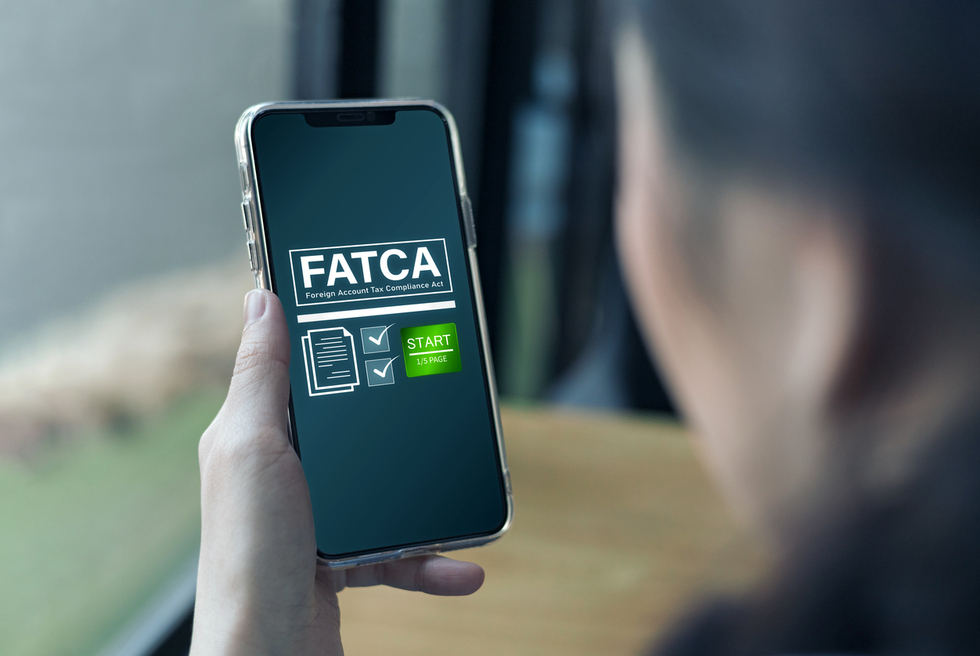Understanding FATCA and FBAR Compliance: A Comprehensive Guide
In the increasingly interconnected world of global finance, the United States Internal Revenue Service (IRS) has implemented rigorous measures to track and regulate the offshore financial activities of U.S. citizens and residents. Two primary tools in this regulatory framework are the Foreign Account Tax Compliance Act (FATCA) and the Report of Foreign Bank and Financial Accounts (FBAR). Understanding these requirements is critical for individuals with foreign financial interests to ensure compliance and avoid potentially severe penalties.
Introduction to FATCA and FBAR
FATCA and FBAR are distinct yet complementary regulatory regimes aimed at combating tax evasion by U.S. taxpayers through the use of foreign financial accounts. While both require disclosure of foreign accounts, the specific rules, filing thresholds, and enforcement mechanisms vary. This article delves into the intricacies of these regulations, helping you understand your obligations and how to comply effectively.
What is FATCA?
The Foreign Account Tax Compliance Act (FATCA), enacted in 2010, is a U.S. federal law designed to prevent tax evasion by U.S. taxpayers holding accounts and other financial assets outside the United States. FATCA requires foreign financial institutions (FFIs) to report information about financial accounts held by U.S. persons or foreign entities in which U.S. persons hold substantial ownership interest.
FATCA also requires individual U.S. taxpayers to report certain foreign financial assets on Form 8938, which is attached to their annual federal income tax returns. The reporting threshold varies depending on the taxpayer's filing status and residency but generally starts at $50,000 for single filers living in the U.S., with higher thresholds for those living abroad.
What is FBAR?
The Report of Foreign Bank and Financial Accounts (FBAR), officially known as FinCEN Form 114, is a form used to report a financial interest in or signature authority over foreign financial accounts if the aggregate value exceeds $10,000 at any time during the calendar year. Unlike FATCA, which is filed with the IRS, FBAR must be submitted electronically to the Financial Crimes Enforcement Network (FinCEN), a bureau of the U.S. Department of the Treasury.
FBAR reporting requirements apply to U.S. citizens, residents, and certain entities such as corporations, partnerships, trusts, and estates. Failure to file FBAR when required can result in significant civil and criminal penalties.
Key Differences Between FATCA and FBAR
- Reporting Location: FATCA reports are filed with the IRS as part of the tax return, whereas FBAR reports are submitted electronically to FinCEN.
- Filing Thresholds: FATCA thresholds vary based on filing status and residency, generally starting at $50,000; FBAR threshold is a fixed $10,000 aggregate across all foreign accounts.
- Types of Accounts: FATCA requires reporting of a broader range of financial assets, including certain stocks and securities, while FBAR focuses primarily on bank and financial accounts.
- Penalties: Both impose strict penalties for non-compliance, but FBAR penalties can be particularly severe with potential criminal charges.
Who Needs to File FATCA and FBAR?
All U.S. citizens and residents, including those living abroad, must determine whether they have foreign financial assets or accounts that meet the FATCA and FBAR filing thresholds. This includes individuals, trusts, estates, and entities that fall under the U.S. tax jurisdiction.
For FATCA, if the total value of specified foreign financial assets exceeds the applicable threshold at the end of the tax year, taxpayers are required to file Form 8938. For FBAR, if the aggregate value of foreign accounts exceeds $10,000 at any time during the calendar year, the FinCEN Form 114 must be filed by April 15 of the following year, with an automatic extension to October 15.
Common Types of Foreign Financial Accounts and Assets Subject to Reporting
- Bank accounts (checking, savings, deposit)
- Custodial accounts held at foreign financial institutions
- Securities accounts
- Mutual funds and hedge funds
- Foreign retirement accounts (in certain circumstances)
- Life insurance or annuity contracts with cash value
The Importance of Compliance
The IRS has significantly increased its enforcement efforts related to offshore financial accounts in recent years. Non-compliance with FATCA and FBAR reporting requirements can lead to substantial financial penalties, interest charges, and even criminal prosecution in cases of willful violations.
The penalties for FBAR non-filing alone can reach up to $12,921 per violation (as of 2025) for non-willful violations, and up to the greater of $148,886 or 50% of the balance in the account at the time of violation for willful violations. Similarly, FATCA penalties can include a $10,000 failure-to-file penalty plus additional penalties for continued failure after IRS notification.
Voluntary Disclosure Programs: Fixing Past Mistakes
For taxpayers who have failed to report foreign assets or accounts in past years, the IRS offers voluntary disclosure programs to come into compliance. These programs can significantly reduce penalties and avoid criminal prosecution, provided taxpayers act proactively and in good faith.
The Offshore Voluntary Disclosure Program (OVDP) was a prominent option before it closed in 2018, but ongoing streamlined filing compliance procedures are now available for eligible taxpayers residing both inside and outside the U.S. These programs require detailed disclosures and payment of back taxes, interest, and applicable penalties.
It is crucial to understand that silence or failure to disclose past foreign assets does not negate the legal obligations or potential consequences. Seeking proper legal advice and assistance in navigating these complex filings is imperative.
Steps to Ensure FATCA and FBAR Compliance
- Identify all foreign financial accounts and assets held during the calendar or tax year.
- Determine whether the aggregate value of these accounts meets or exceeds the applicable FATCA and FBAR reporting thresholds.
- Prepare accurate filings: Form 8938 for FATCA with the IRS and FinCEN Form 114 for FBAR using the BSA E-Filing System.
- File the forms by the applicable deadlines: Generally April 15 with extension for FATCA; April 15 with automatic extension to October 15 for FBAR.
- Maintain thorough records of all foreign accounts and related documentation for at least five years.
- Consult with qualified tax professionals or legal advisors specializing in offshore compliance to review your filings and guide you on complex issues.
Common Challenges and How to Overcome Them
Navigating FATCA and FBAR compliance often presents numerous challenges due to complex rules, varying reporting thresholds, and differences in foreign financial institution practices. Common issues include understanding ownership thresholds, foreign entity reporting, determining when signature authority triggers an FBAR filing obligation, and gathering necessary financial information from foreign banks.
Taxpayers may also face language barriers, differing time zones, and varied financial documentation requirements when dealing with foreign institutions. To overcome these challenges, proactive communication with financial institutions, early preparation for filing, and professional assistance are essential.
Recent Updates and Looking Ahead to 2025
As of 2025, the IRS continues to expand its enforcement and data-sharing initiatives globally through FATCA intergovernmental agreements (IGAs) with numerous countries. Enhanced information exchange aims to increase transparency and reduce tax evasion opportunities. Taxpayers should remain vigilant regarding updates to filing thresholds, penalties, and procedural requirements.
Staying informed about legislative changes and IRS guidance ensures compliance and minimizes risks of inadvertent violations. Consultation with experts knowledgeable in current tax laws and reporting obligations remains a best practice.
How Legal Marketplace Consultant Can Assist You
At Legal Marketplace Consultant, we specialize in supporting individuals and entities in navigating the complex landscape of FATCA and FBAR compliance. Our team of tax attorneys, legal consultants, and financial advisors provide tailored services to ensure your filings meet all U.S. obligations while minimizing stress and exposure to penalties.
- Comprehensive review of your foreign financial assets and accounts
- Assistance with preparing and filing Form 8938 and FBAR (FinCEN Form 114)
- Support for voluntary disclosure and penalty mitigation strategies
- Ongoing advisory on changes to FATCA and FBAR regulations
- Representation in IRS communications and audits
If you suspect past filing omissions or need guidance with current year compliance, we invite you to reach out to us. Contact details and communication channels are provided in our bio, or feel free to send a private message for confidential consultations.
Legal Marketplace Consultant is a legal company specializing in comprehensive legal services for individuals and businesses, focusing on tax compliance and international financial law. Our experienced professionals include attorneys, tax consultants, auditors, and accountants dedicated to delivering precise and effective legal solutions.
Compliance with FATCA and FBAR requirements is essential for U.S. persons with foreign financial interests to avoid substantial penalties and legal complications. Understanding the differences between these regulations, recognizing your reporting obligations, and taking proactive steps to file accurately and timely are crucial.
Voluntary disclosure programs offer a valuable opportunity to rectify past mistakes, but silence or inaction only increases risks. Partnering with knowledgeable legal professionals, such as Legal Marketplace Consultant, can guide you through the complexities of FATCA and FBAR compliance, helping secure your financial and legal standing.































